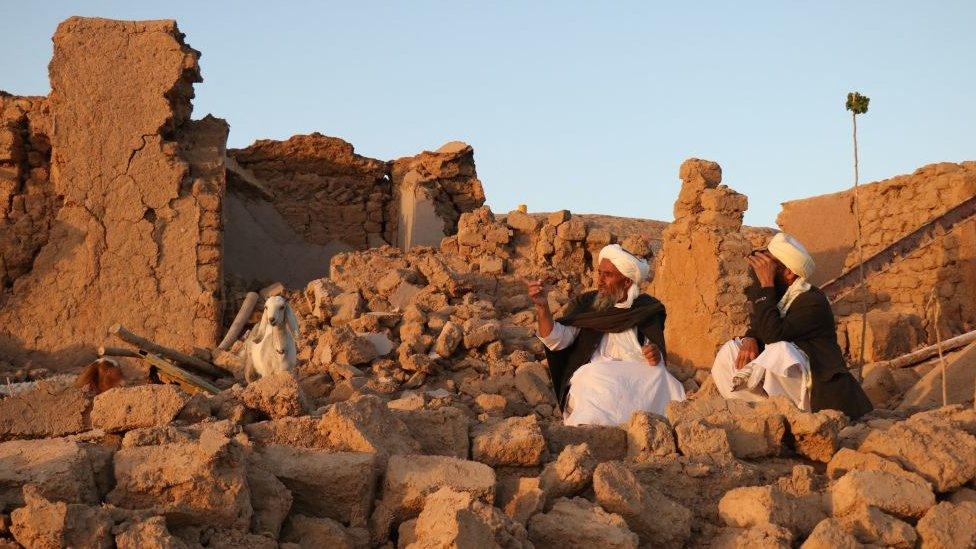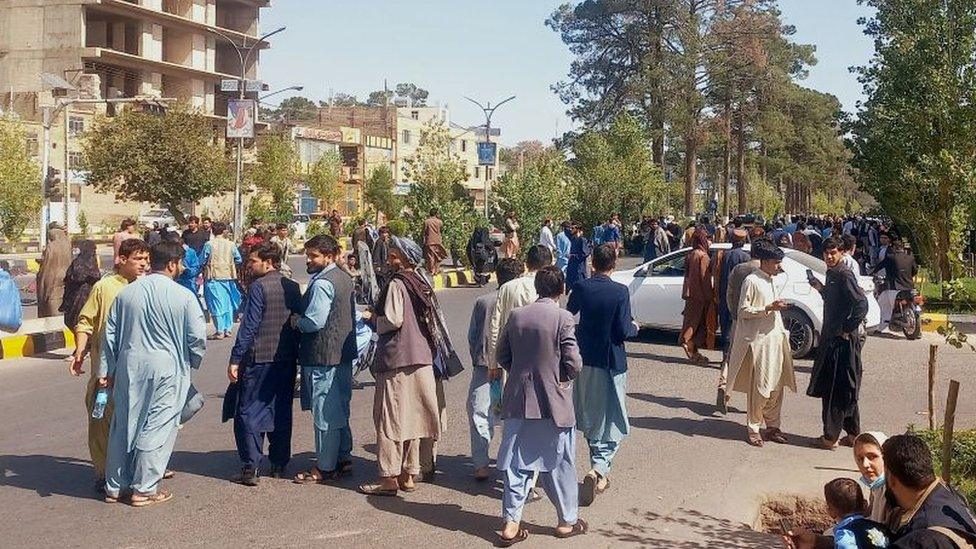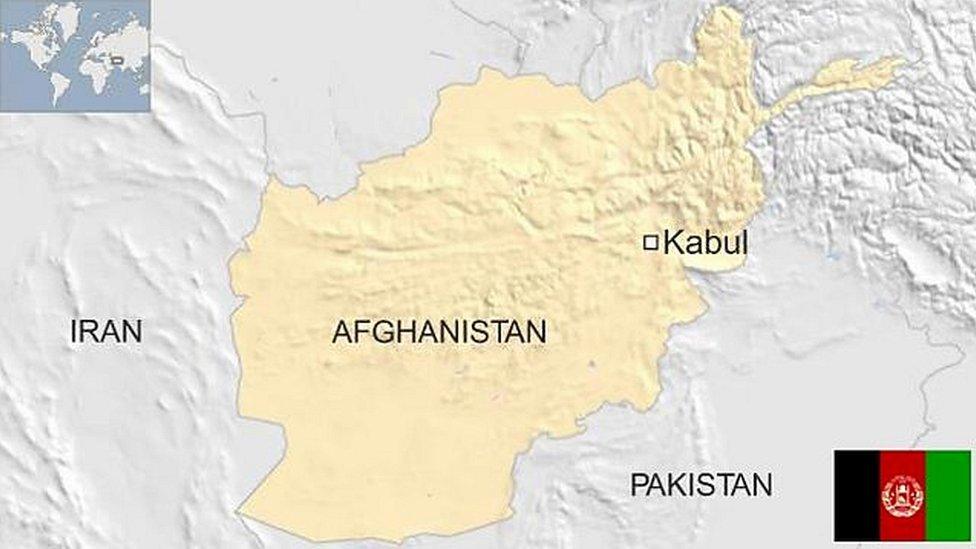Afghanistan earthquake: Hundreds dead in powerful quake
- Published

Many of the villages hit by the quake consist of little more than mud houses
Hundreds of people are feared dead after a powerful earthquake hit western Afghanistan, near the Iranian border.
The Taliban government initially said the death toll could be more than 2,000, but later clarified that this number included injured people as well.
The 6.3 magnitude quake devastated at least 12 villages near the city of Herat on Saturday.
There were powerful aftershocks. Survivors described their terror as buildings collapsed around them.
Rescue teams worked through the night trying to find survivors trapped beneath the rubble.
Thousands of people have been injured. In a country with sorely inadequate medical facilities, hospitals are struggling to treat the injured. The UN and other organisations have begun to rush in emergency supplies.
The earthquake struck about 40km (25 miles) north-west of Herat at around 11:00 local time (06:30 GMT) on Saturday.
The worst affected communities are remote and consist of mud structures. "In the very first shake all the houses collapsed," Herat resident Bashir Ahmad, whose family lives in the one of the villages, told AFP news agency.
"Those who were inside the houses were buried," he added. "There are families we have heard no news from."
The Taliban public health minister is visiting Herat to assess the scale of the impact. The World Health Organization (WHO) said at least 465 houses had been flattened, external.

People fled buildings in Herat after the earthquake on Saturday
Footage from Herat Central Hospital showed casualties linked up to intravenous drips being treated outside the main building - a sign of the sudden and overwhelming demand for emergency treatment.
Other pictures show scenes of devastation in Herat's Injil district where rubble blocked roads, hampering rescue efforts.
"The situation was very horrible, I have never experienced such a thing," student Idrees Arsala told AFP. He was the last to safely evacuate his classroom after the quakes began.
Herat is located 120km (75 miles) east of the Iranian border and is considered to be the cultural capital of Afghanistan. An estimated 1.9 million people are believed to be living in the province.
Afghanistan is frequently hit by earthquakes - especially in the Hindu Kush mountain range as it lies near the junction of the Eurasian and Indian tectonic plates.
In June last year, the province of Paktika was hit by a 5.9 magnitude quake which killed more than 1,000 people and left tens of thousands homeless.


Have you been affected by the earthquake? Please email: haveyoursay@bbc.co.uk, external
Please include a contact number if you are willing to speak to a BBC journalist. You can also get in touch in the following ways:
WhatsApp: +44 7756 165803, external
Tweet: @BBC_HaveYourSay, external
Or fill out the form below
Please read our terms & conditions and privacy policy
If you are reading this page and can't see the form you will need to visit the mobile version of the BBC website to submit your question or comment or you can email us at HaveYourSay@bbc.co.uk, external. Please include your name, age and location with any submission.

Related topics
- Published10 March
